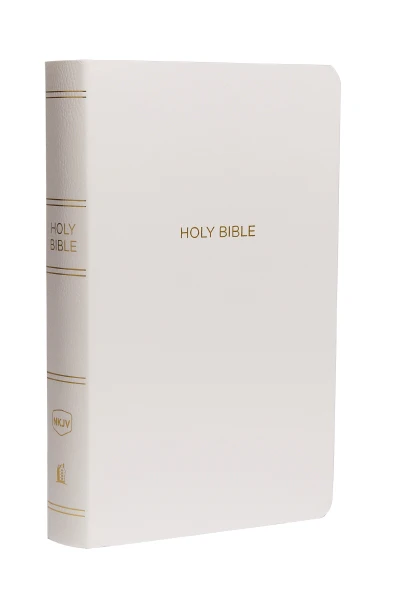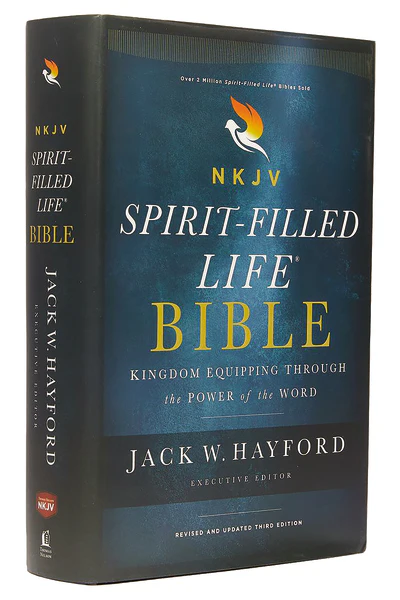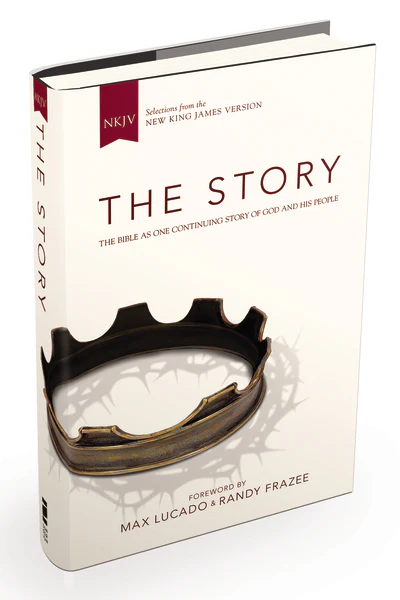1 Kings 12:25-13:10
New King James Version
Jeroboam’s Gold Calves
25 Then Jeroboam (A)built[a] Shechem in the mountains of Ephraim, and dwelt there. Also he went out from there and built (B)Penuel. 26 And Jeroboam said in his heart, “Now the kingdom may return to the house of David: 27 If these people (C)go up to offer sacrifices in the house of the Lord at Jerusalem, then the heart of this people will turn back to their lord, Rehoboam king of Judah, and they will kill me and go back to Rehoboam king of Judah.”
28 Therefore the king asked advice, (D)made two calves of gold, and said to the people, “It is too much for you to go up to Jerusalem. (E)Here are your gods, O Israel, which brought you up from the land of Egypt!” 29 And he set up one in (F)Bethel, and the other he put in (G)Dan. 30 Now this thing became (H)a sin, for the people went to worship before the one as far as Dan. 31 He made [b]shrines on the high places, (I)and made priests from every class of people, who were not of the sons of Levi.
32 Jeroboam [c]ordained a feast on the fifteenth day of the eighth month, like (J)the feast that was in Judah, and offered sacrifices on the altar. So he did at Bethel, sacrificing to the calves that he had made. (K)And at Bethel he installed the priests of the high places which he had made. 33 So he made offerings on the altar which he had made at Bethel on the fifteenth day of the eighth month, in the month which he had (L)devised in his own heart. And he [d]ordained a feast for the children of Israel, and offered sacrifices on the altar and (M)burned incense.
The Message of the Man of God
13 And behold, (N)a man of God went from Judah to Bethel [e]by the word of the Lord, (O)and Jeroboam stood by the altar to burn incense. 2 Then he cried out against the altar [f]by the word of the Lord, and said, “O altar, altar! Thus says the Lord: ‘Behold, a child, (P)Josiah by name, shall be born to the house of David; and on you he shall sacrifice the priests of the high places who burn incense on you, and men’s bones shall be (Q)burned on you.’ ” 3 And he gave (R)a sign the same day, saying, “This is the sign which the Lord has spoken: Surely the altar shall split apart, and the ashes on it shall be poured out.”
4 So it came to pass when King Jeroboam heard the saying of the man of God, who cried out against the altar in Bethel, that he stretched out his hand from the altar, saying, “Arrest him!” Then his hand, which he stretched out toward him, withered, so that he could not pull it back to himself. 5 The altar also was split apart, and the ashes poured out from the altar, according to the sign which the man of God had given by the word of the Lord. 6 Then the king answered and said to the man of God, “Please (S)entreat the favor of the Lord your God, and pray for me, that my hand may be restored to me.”
So the man of God entreated the Lord, and the king’s hand was restored to him, and became as before. 7 Then the king said to the man of God, “Come home with me and refresh yourself, and (T)I will give you a reward.”
8 But the man of God said to the king, (U)“If you were to give me half your house, I would not go in with you; nor would I eat bread nor drink water in this place. 9 For so it was commanded me by the word of the Lord, saying, (V)‘You shall not eat bread, nor drink water, nor return by the same way you came.’ ” 10 So he went another way and did not return by the way he came to Bethel.
Footnotes
- 1 Kings 12:25 fortified
- 1 Kings 12:31 Lit. a house; cf. 1 Kin. 13:32, lit. houses
- 1 Kings 12:32 instituted
- 1 Kings 12:33 instituted
- 1 Kings 13:1 at the Lord’s command
- 1 Kings 13:2 at the Lord’s command
1 Kings 13:11-34
New King James Version
Death of the Man of God
11 Now an (A)old prophet dwelt in Bethel, and his [a]sons came and told him all the works that the man of God had done that day in Bethel; they also told their father the words which he had spoken to the king. 12 And their father said to them, “Which way did he go?” For his sons [b]had seen which way the man of God went who came from Judah. 13 Then he said to his sons, “Saddle the donkey for me.” So they saddled the donkey for him; and he rode on it, 14 and went after the man of God, and found him sitting under an oak. Then he said to him, “Are you the man of God who came from Judah?”
And he said, “I am.”
15 Then he said to him, “Come home with me and eat bread.”
16 And he said, (B)“I cannot return with you nor go in with you; neither can I eat bread nor drink water with you in this place. 17 For [c]I have been told (C)by the word of the Lord, ‘You shall not eat bread nor drink water there, nor return by going the way you came.’ ”
18 He said to him, “I too am a prophet as you are, and an angel spoke to me by the word of the Lord, saying, ‘Bring him back with you to your house, that he may eat bread and drink water.’ ” (He was lying to him.)
19 So he went back with him, and ate bread in his house, and drank water.
20 Now it happened, as they sat at the table, that the word of the Lord came to the prophet who had brought him back; 21 and he cried out to the man of God who came from Judah, saying, “Thus says the Lord: ‘Because you have disobeyed the word of the Lord, and have not kept the commandment which the Lord your God commanded you, 22 but you came back, ate bread, and drank water in the (D)place of which the Lord said to you, “Eat no bread and drink no water,” your corpse shall not come to the tomb of your fathers.’ ”
23 So it was, after he had eaten bread and after he had drunk, that he saddled the donkey for him, the prophet whom he had brought back. 24 When he was gone, (E)a lion met him on the road and killed him. And his corpse was thrown on the road, and the donkey stood by it. The lion also stood by the corpse. 25 And there, men passed by and saw the corpse thrown on the road, and the lion standing by the corpse. Then they went and told it in the city where the old prophet dwelt.
26 Now when the prophet who had brought him back from the way heard it, he said, “It is the man of God who was disobedient to the word of the Lord. Therefore the Lord has delivered him to the lion, which has torn him and killed him, according to the word of the Lord which He spoke to him.” 27 And he spoke to his sons, saying, “Saddle the donkey for me.” So they saddled it. 28 Then he went and found his corpse thrown on the road, and the donkey and the lion standing by the corpse. The lion had not eaten the corpse nor torn the donkey. 29 And the prophet took up the corpse of the man of God, laid it on the donkey, and brought it back. So the old prophet came to the city to mourn, and to bury him. 30 Then he laid the corpse in his own tomb; and they mourned over him, saying, (F)“Alas, my brother!” 31 So it was, after he had buried him, that he spoke to his sons, saying, “When I am dead, then bury me in the tomb where the man of God is buried; (G)lay my bones beside his bones. 32 (H)For the [d]saying which he cried out by the word of the Lord against the altar in Bethel, and against all the [e]shrines on the high places which are in the cities of (I)Samaria, will surely come to pass.”
33 (J)After this event Jeroboam did not turn from his evil way, but again he made priests from every class of people for the high places; whoever wished, he consecrated him, and he became one of the priests of the high places. 34 (K)And this thing was the sin of the house of Jeroboam, so as (L)to exterminate and destroy it from the face of the earth.
Read full chapterFootnotes
- 1 Kings 13:11 Lit. son
- 1 Kings 13:12 LXX, Syr., Tg., Vg. showed him
- 1 Kings 13:17 Lit. a command came to me by
- 1 Kings 13:32 Lit. word
- 1 Kings 13:32 Lit. houses
Luke 19:11-28
New King James Version
The Parable of the Minas(A)
11 Now as they heard these things, He spoke another parable, because He was near Jerusalem and because (B)they thought the kingdom of God would appear immediately. 12 (C)Therefore He said: “A certain nobleman went into a far country to receive for himself a kingdom and to return. 13 So he called ten of his servants, delivered to them ten [a]minas, and said to them, ‘Do business till I come.’ 14 (D)But his citizens hated him, and sent a delegation after him, saying, ‘We will not have this man to reign over us.’
15 “And so it was that when he returned, having received the kingdom, he then commanded these servants, to whom he had given the money, to be called to him, that he might know how much every man had gained by trading. 16 Then came the first, saying, ‘Master, your mina has earned ten minas.’ 17 And he said to him, (E)‘Well done, good servant; because you were (F)faithful in a very little, have authority over ten cities.’ 18 And the second came, saying, ‘Master, your mina has earned five minas.’ 19 Likewise he said to him, ‘You also be over five cities.’
20 “Then another came, saying, ‘Master, here is your mina, which I have kept put away in a handkerchief. 21 (G)For I feared you, because you are [b]an austere man. You collect what you did not deposit, and reap what you did not sow.’ 22 And he said to him, (H)‘Out of your own mouth I will judge you, you wicked servant. (I)You knew that I was an austere man, collecting what I did not deposit and reaping what I did not sow. 23 Why then did you not put my money in the bank, that at my coming I might have collected it with interest?’
24 “And he said to those who stood by, ‘Take the mina from him, and give it to him who has ten minas.’ 25 (But they said to him, ‘Master, he has ten minas.’) 26 ‘For I say to you, (J)that to everyone who has will be given; and from him who does not have, even what he has will be taken away from him. 27 But bring here those enemies of mine, who did not want me to reign over them, and slay them before me.’ ”
The Triumphal Entry(K)
28 When He had said this, (L)He went on ahead, going up to Jerusalem.
Read full chapterFootnotes
- Luke 19:13 Gr. mna, same as Heb. minah, each worth about three months’ salary
- Luke 19:21 a severe
Scripture taken from the New King James Version®. Copyright © 1982 by Thomas Nelson. Used by permission. All rights reserved.
Bible Gateway Recommends






